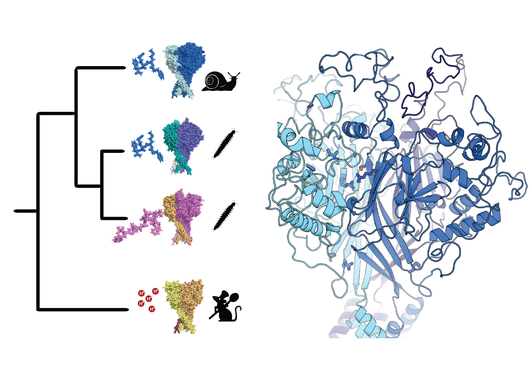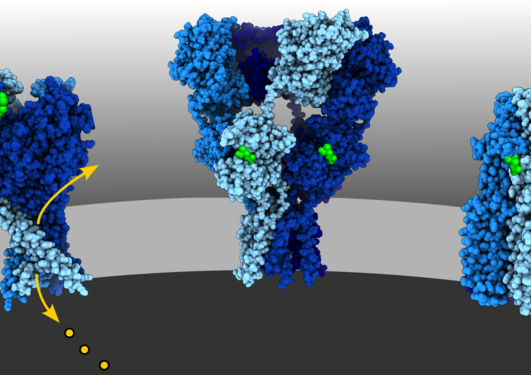Congratulations and farewell to Dr. Dandamudi!
On the 28th of September 2023, PhD candidate Mowgli Dandamudi successfully defended his PhD thesis titled: “Development of chemogenetic tools from invertebrate ion channels”.
Main content
After a skillful presentation of his doctoral project conducted for the past four years in Tim Lynagh’s Group, Mowgli shared insightful discussions with defense opponents Associate Professor Lena van Giesen from the Norwegian University of Science and Technology (NTNU) and Professor Stefan Gründer from RWTH Aachen University, Germany. The defense was led by Professor Ørjan Totland and the defense committee was headed by Professor Fabian Rentzsch, both from the Department of Biological Sciences at the University of Bergen.
The Lynagh Group
During his PhD in the Lynagh group, Mowgli’s main focus was on a family of ion channels gated by the peptide ligand FMRFamide. These molecules, found in some invertebrate species such as snails, slugs, and worms, contribute to communication between brain cells. His project had the ambitious goal of using these ion channels to develop tools that can help study brain cells in other animals, such as vertebrates. “Mowgli showed that whatever your scientific background, you can put together a hypothesis on something, chip away at it with both individual hard work and teamwork, and eventually come up with either a bunch of useful information or sometimes even the answer to the question,” said Group Leader Tim Lynagh.
Mowgli showed that whatever your scientific background, you can put together a hypothesis on something, chip away at it with both individual hard work and teamwork, and eventually come up with either a bunch of useful information or sometimes even the answer to the question
-Tim Lynagh
In June 2022, Mowgli led a study that was published by the Journal of Biological Chemistry. The article, “Comparative analysis defines a broader FMRFamide-gated sodium channel family and determinants of neuropeptide sensitivity,” was highlighted as one of the Editors’ Picks, and selected for its ‘exceptional contribution to the field’. “When I saw that someone thought ‘That’s good, we’ll take it, we’ll publish it’, I felt validated because it was a known and liked journal,” Mowgli said.
Time before the Michael Sars Centre
After a bachelor’s degree in biotechnology at the Gokaraju Rangaraju Institute of Engineering and Technology in India, Mowgli graduated with a Master’s degree in Molecular and Translational Neuroscience from Ulm University in Germany. In 2019, Mowgli joined the Michael Sars Centre. For Mowgli, the challenging nature of completing the PhD was made easier through his collaboration and friendships from the lab. “The reason I got through the PhD was all the people around me. I felt like I got really lucky with the group I’m with. I don’t think I could have survived without them.”
For the future
After an intense day culminating four years of hard work, the new Doctor enjoyed a celebratory dinner with friends, colleagues and family. "I can't imagine how much we’ll miss not having Mowgli at the Michael Sars Centre,” said lab mate Josep Marti Solans. “It’s not only the scientific discussions that we used to have at our office, his laugh, or his disposition to always help others. It is the fact that he became a friend who we now won't see so often."
For the future, Mowgli wishes to explore new professional opportunities outside of academia. We wish him all the best for this next exciting chapter in his career!









